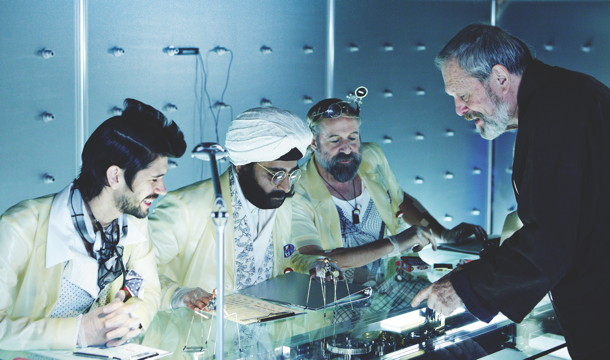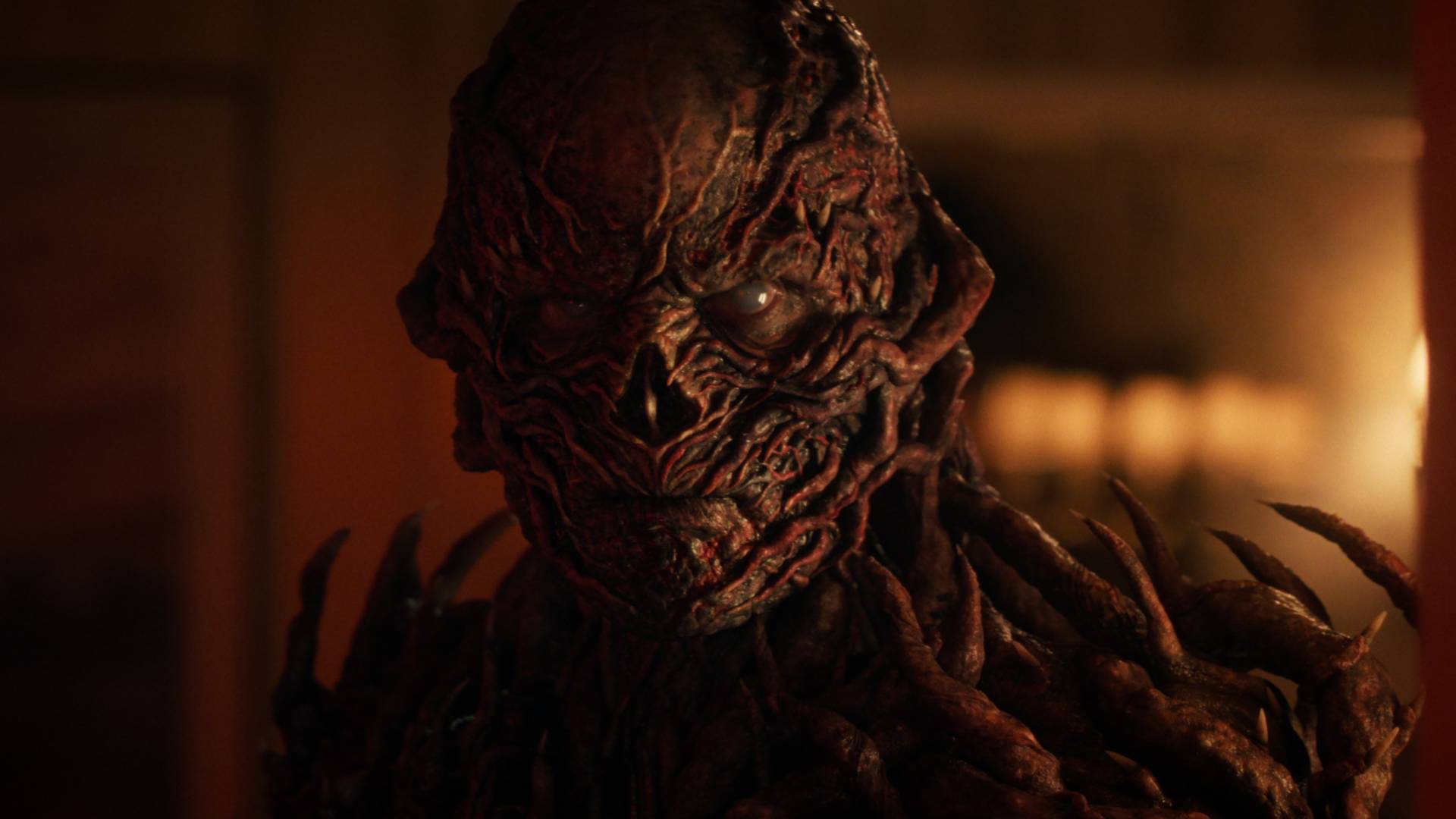The Zero Theorem: Terry Gilliam Interview
The Brazil and Twelve Monkeys director goes back to the future
Terry Gilliam on his latest sci-fi odyssey

Terry Gilliam has gone back to the future. In The Zero Theorem, the Brazil and Twelve Monkeys director travels to typically weird future London, where eccentric loner Qohen Leth ( Inglourious Basterds' Christoph Waltz) is desperately looking for an answer to an unsolvable problem... We spoke to Gilliam about his latest flight of fantasy.
What do you think of people comparing The Zero Theorem to Twelve Monkeys and Brazil ?
It's a very strange thing – the characters are so diffeerent. Also, people keep referring to it as a dystopia. I don't think it's a dystopia, I just feel like it's the world we're in now – everybody's out there shopping, they're wearing colourful clothes, they're working, zipping around on skateboards and rollerblades. This is wonderful. Everybody's having a great time, except for our hero.
You once said that Brazil was set 15 minutes in the future. Where's The Zero Theorem ?
Again I thought Zero Theorem was sort of 15 minutes into the future, but by the time we finished it turned out to be a period piece. We're living in the future. I don't know what else is going to happen. It just seems we have every kind of technology we could want. We're travelling to the stars - well, we're not doing it personally, but who wants to waste a life doing that?
How do you feel about technology?
I'm a complete addict. I probably spend 10 hours a day on my computer, staring at that screen. I actually stay away from as much as I can, I don't do videogames or anything because I know I'll just get hooked because I do. Abd I've got an iPhone now because we had some Apple products in the film and I was given one. I'd never bought one. I was ten years late in getting a mobile phone.
In fact, there are several lines of dialogue in the film that were recorded on an iPhone. Christoph was in Vienna, I needed to change a line, I sent him an email with the old line as it had been recorded, I said these are the new words I want you to say and he got his iPhone out, recorded it and sent it ro me on email. That's fantastic, that part of technology. What bothers me is how so much of this brilliant technology is wasted on basically nothing – "Oh, I'm here at a concert," the tweeting and all of that. T he antisocial network, I call it, that makes me a bit crazy. If I want something, information on the web, boom, I've got it so quickly, so it's fantastic. But it's just how you use these things.
The future in the film is very much a collision of old and new. What was the thinking behind that? That's the world we live in, isn't it? We've got old plumbing that doesn't work, we've got sewers in London that are leaking, microchips or a little USB storage thing that are the size of your fingernail and stores 32 to 64 gigs. We live in a world of old and new and things about to come, so I just play with it, and have some fun. For me it's nothing more than that, that's why I said, "Let's have liquid computer memory!" What the fuck is that? I don't know, it just seemed a good idea, and I like people handing these phials back and forth. When I get back from shooting in Bucharest I'm reading about how we're trying to use DNA to store memory, and well, that's pretty close to liquid, we're getting there. I think almost anything you want to imagine is probably in the pipeline right now.
Weekly digests, tales from the communities you love, and more
You didn't write the script (Pat Rushin did), but you've said that it seemed very like a Terry Gilliam film – so much so that you wanted to deGilliam it a bit. What changes did you make?
It's not that I made changes, it's more about emphasis. The fact that it takes place basically in one location is one way of de-emphasising it, so you're really just concentrating it. It's about the actors, and about their relationships, so that to me was the most important part of it, so you cast well, and you get great performances. And in a sense I said early on to Christoph, since he is the movie, I will follow him. I'm not going to sit and then plan a scene and storyboard it and say you've got to be here, you've got to be that. We sort of worked through what he felt as a character.
Imaginative visuals have always been a big part of your films. Has the advent of CG made that side of the job easier?
It certainly helps, but I kind of don't approach it that way, because I find when I watch the big films –those that have got hundreds of millions – they're doing it only because they can do it, and can afford to do it. I still like trying to work from something real and physical. I don't want things to become fantastical to the point that I don't believe in them any more, and I think the more that I can believe it's real not only helps the actors but it makes the images a little bit messier – when you've got all the money to design everything, I find films are too lovingly designed and i don't believe in them any more. I like mixing things that don't quite fit in, things that don't quite work, and the surprises that you get from the real world keep me on my toes – I like that. But then what I can do with the technology is I can fix it, I can fix the things that don't work and then add a few bits and pieces, and I'm happy.
The Zero Theorem is in cinemas today. Read more about the film in the current issue of SFX , on sale now.
Richard is a freelancer journalist and editor, and was once a physicist. Rich is the former editor of SFX Magazine, but has since gone freelance, writing for websites and publications including GamesRadar+, SFX, Total Film, and more. He also co-hosts the podcast, Robby the Robot's Waiting, which is focused on sci-fi and fantasy.


